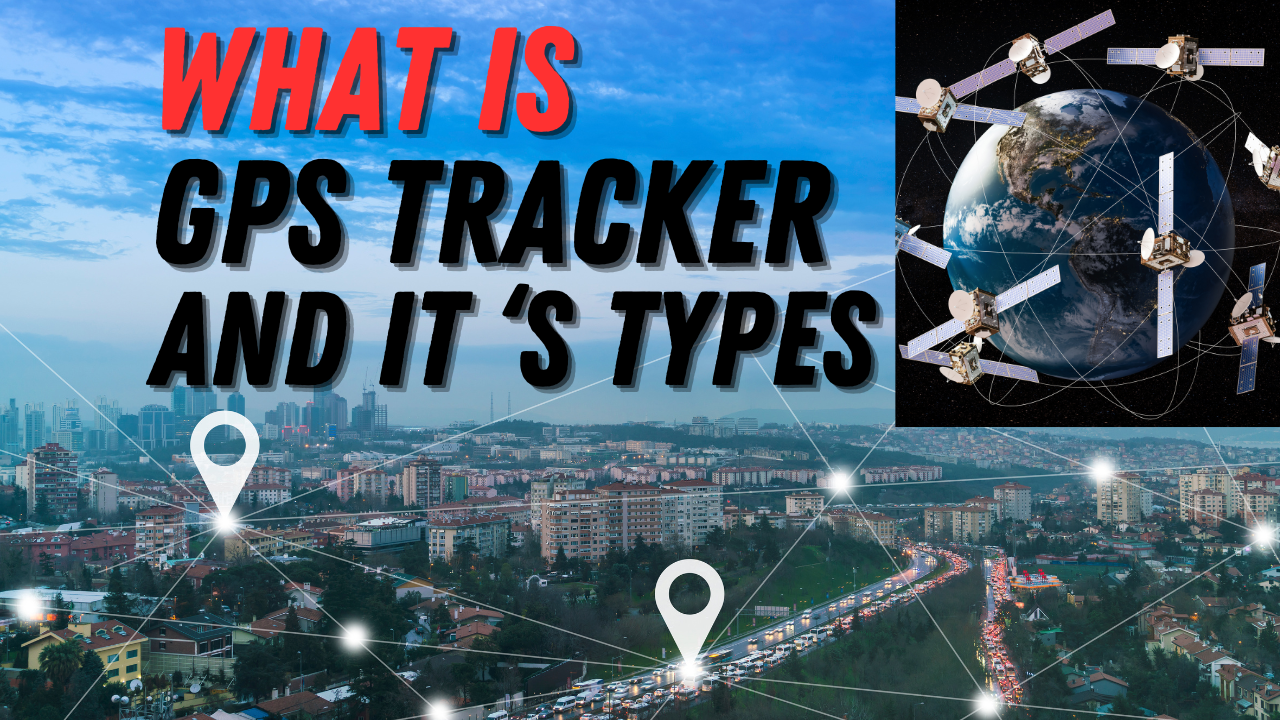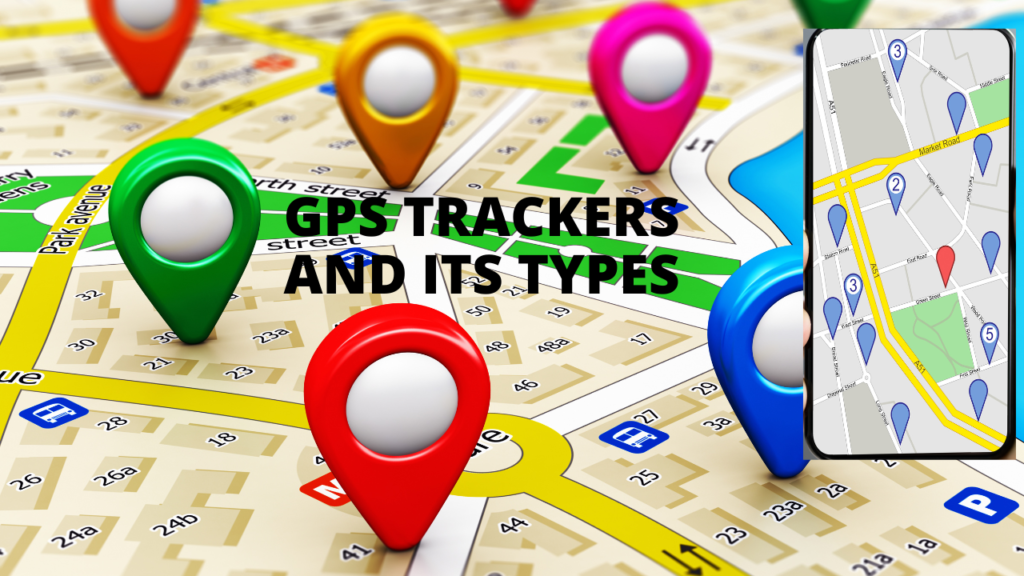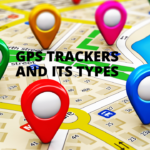Table of Contents

GPS Trackers: The Global Positioning System (GPS) has become an integral part of our daily lives, revolutionizing the way we navigate and track locations. One of the key applications of GPS technology is the GPS tracker. In this article, we’ll explore what GPS trackers are, their underlying technology, and the various types that cater to diverse needs.
What is a GPS Tracker?
A tracker is a device that utilizes the signals from a network of satellites to determine the precise location of a person, vehicle, or asset in real time. These trackers have evolved significantly over the years, becoming smaller, more efficient, and capable of providing detailed information about the tracked object’s movements.
How Tracker Work:
trackers rely on a network of satellites orbiting the Earth. Each GPS tracker communicates with a minimum of three satellites to triangulate its position accurately. The trackers calculate the distance from each satellite based on the time it takes for signals to travel. By combining these distances, the device determines its latitude, longitude, and altitude.
Here’s a brief overview of the basic working principles:
- Satellite Communication: The GPS tracker communicates with at least three satellites simultaneously.
- Distance Calculation: By measuring the time it takes for signals to travel from the satellites to the tracker, the device calculates its distance from each satellite.
- Triangulation: The GPS tracker triangulates its position based on the distances from multiple satellites, determining the precise location.
- Data Transmission: The calculated location data is transmitted to a central server or user device, providing real-time tracking information.
Types of GPS Trackers:
1. Personal GPS Trackers:
- Use Case: Ideal for tracking individuals, such as children, elderly family members, or outdoor enthusiasts.
- Features: Compact, lightweight, and often equipped with additional features like panic buttons or geofencing capabilities.
2. Vehicle Trackers:
- Use Case: Commonly used for fleet management, theft prevention, or monitoring driving behavior.
- Features: Provide real-time location updates, and speed monitoring, and may integrate with vehicle diagnostics.
3. Asset Trackers:
- Use Case: Designed for tracking valuable assets like equipment, containers, or packages during transportation.
- Features: Durable, weather-resistant, and may include tamper alerts or geofencing for added security.
4. Fitness Trackers:
- Use Case: Geared towards tracking physical activity, such as running, cycling, or hiking.
- Features: Measure distance traveled, and speed, and sometimes include health-related metrics like heart rate monitoring.
5. Pets Trackers:
- Use Case: Specifically designed to track the location of pets, particularly cats and dogs.
- Features: Lightweight, waterproof, and may include features like activity monitoring or virtual boundaries.
6. Smartphone Tracking Apps:
- Use Case: Utilizes the tracker capabilities of smartphones for location tracking.
- Features: Offer a wide range of functionalities, from real-time tracking to location history, often used for family or friend tracking.
Benefits of Trackers:
- Location Awareness: Provides real-time and historical location data, enabling users to know where their assets or loved ones are at all times.
- Security: Acts as a deterrent against theft and aids in the recovery of stolen vehicles or assets.
- Efficiency: Enhances fleet management, optimizing routes, monitoring fuel consumption, and improving overall operational efficiency.
- Safety: Ensures the safety of individuals by enabling quick response in emergencies or providing alerts for predefined geofenced areas.
- Peace of Mind: Offers peace of mind for parents, pet owners, and businesses by providing constant visibility and control.
best manufacturers of Trackers
several manufacturers are known for producing reliable GPS Trackers. However, the “best” manufacturer can vary depending on specific needs, use cases, and individual preferences. Here are some reputable manufacturers known for producing quality GPS trackers:
- Garmin:
- Known for their GPS navigation devices, Garmin also offers a range of GPS Trackers for various purposes, including fitness tracking, pet tracking, and outdoor adventures.
- Spot (Globalstar):
- Specializing in satellite communication devices, Spot offers trackers suitable for outdoor activities, personal safety, and asset tracking.
- Tile:
- Tile is recognized for its Bluetooth-based trackers that help users locate personal items like keys, wallets, and smartphones. While not GPS in the traditional sense, they use location-based technology for item tracking.
- Trackimo:
- Trackimo provides a variety of GPS trackers for personal and business use, including trackers for vehicles, assets, and even drones.
- SpyTec:
- SpyTec focuses on GPS tracking solutions, offering a range of trackers for personal and vehicle tracking. Their products are known for reliability and user-friendly interfaces.
- LandAirSea:
- Specializing in vehicle tracking devices, LandAirSea offers compact and discreet GPS trackers for fleet management, asset tracking, and personal use.
- AngelSense:
- AngelSense is known for GPS trackers designed specifically for individuals with special needs, such as children with autism or elderly family members with cognitive challenges.
- Trax:
- Trax provides GPS trackers suitable for various applications, including personal and asset tracking. Their trackers often come with features like geofencing and real-time location updates.
- Veriot:
- Veriot offers a range of trackers for personal, pet, and vehicle tracking. Their products are designed to be user-friendly and versatile.
- Amcrest:
- Amcrest manufactures trackers for personal and asset tracking, offering features like real-time tracking, geofencing, and historical location data.
Before choosing a GPS tracker, it’s essential to consider factors such as the intended use, GPS desired features, battery life, subscription costs (if applicable), and user reviews. Additionally, the availability of newer models or changes in the market may impact the landscape of GPS tracker manufacturers. Always check the latest reviews and product specifications for the most up-to-date information.
conclusion
GPS trackers have evolved into versatile devices that cater to a myriad of applications. From personal safety to asset management, these trackers leverage satellite technology to provide accurate and real-time location data. As technology continues to advance, we can expect even more sophisticated and integrated GPS tracking solutions that further streamline our ability to navigate and monitor the world around us.
read more and contact us








